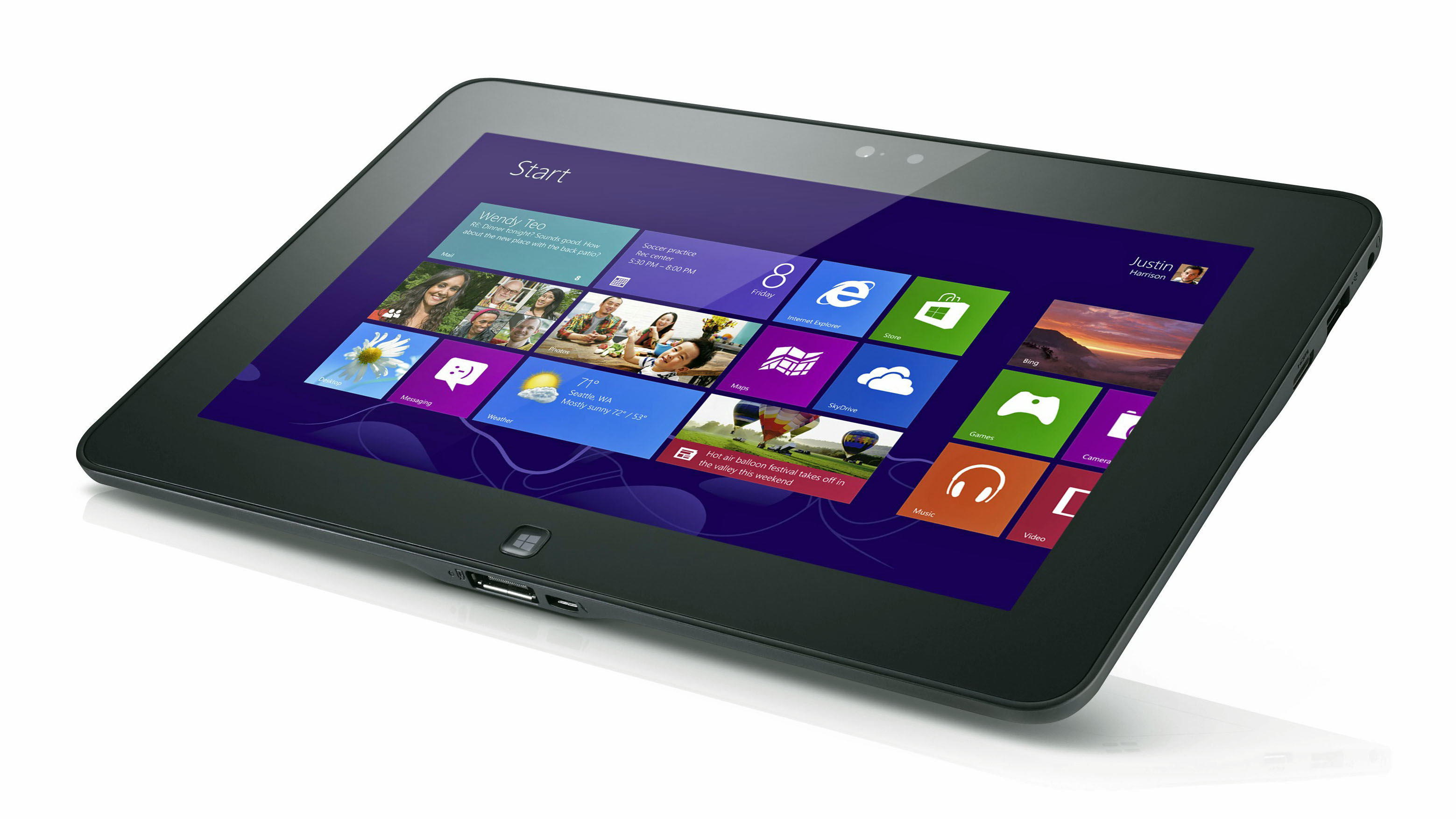
Dell has launched a new version of Latitude 10 tablet computer with a security configuration aimed at the business market.
It has been given a dual-authentication function, with an integrated smart card and fingerprint reader, to add to its end point security management suite.
The suite uses the readers in the Latitutude 10 as well as third party security devices. A Dell wizard supports the setup.
Other security features include the Trusted Platform Module 1.2 hardware, to allow networks to check the integrity of devices, and Microsoft BitLocker Drive Encryption. There is also Computrace Support for stealth tracking software to help recover lost or stolen devices, and a Noble Lock slot.
Right tablet for the job
"Other tablets being deployed in business environments can cause more harm than good in the long run with unforeseen management costs and unsecure data protection and access," said Neil Hand, Vice President of Tablets and Performance PCs, End User Computing at Dell.
"With Latitude 10 enhanced security configuration, our customers will be able to give their workers the mobility and productivity they want while having the peace of mind they can easily enforce and adhere to some of the most rigorous security regulations."
The move is part of Dell's effort to make itself a serious presence in the market for business tablets. While the Latitude 10 has been aimed at the education and consumer markets as much as small business, the company believes the extra focus on security will help to strengthen its appeal to the latter.
Get daily insight, inspiration and deals in your inbox
Sign up for breaking news, reviews, opinion, top tech deals, and more.
"Small businesses are asking how they can enable workers to move around, access data, meet compliance regulation and keep company information safe," says Brett Hansen, Executive Director, Client Software Planning and Management for Dell.
He says the company's recent acquisition of security software firm Credant Technologies has made it possible to introduce a new approach to data encryption on the Latitude 10.
Encryption made easier
Data kept on the Latitude's hard drive can be kept to 128 bit encyrption and shared in that state with other devices. IT administrators can specify the people with whom a user can share different data sets, or allow them the freedom to share some data with they consider appropriate.
Dell has attempted to reduce the effort involved in programming the Latitude 10 to match compliance requirements of a specific business or the country within which it works. It has provided a range of templates for the appropriate level of security, although these can be modified by administrators.
"It's provided a lot of restrictions, based on our understanding of the laws of different places and their regulations for various industries," Hansen says.
The Latitude 10, which is priced at £586 in the UK market, is also enabled for the transfer of data to Android or iOS devices.
Dell has introduced a longer lasting version of the tablet's battery, capable of working for up to 20 hours without a recharge rather than the standard 10.
It is making replacement batteries quickly available from its customer services, priced at £17 for the two-cell, 30W version, and £40 for the four-cell 59W version. It says these prices make it economical to carry a spare.